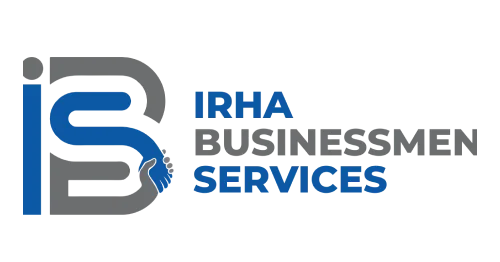POS Machine
Home/POS Machine
Seamless Transactions with Our Next-Gen POS Technology
Simplify your business transactions with our expert guidance on Point of Sale (POS) machines. At IRHA Businessmen Services, we’re dedicated to helping businesses like yours streamline payment processes and enhance customer satisfaction.
Why choose us?
Every business is unique, and so are its payment needs. Our expert consultants will assess your business requirements and recommend the perfect POS machine that meets your specific needs, whether you’re a small retail store or a bustling restaurant.

Get Started with Our POS Solutions Today
Our POS Solutions Include:
Integrating a new POS machine into your existing systems can be daunting. Our consultants will ensure a smooth transition by guiding you through the setup process and providing training for you and your staff.
- Advanced POS Systems: Our cutting-edge POS machines are equipped with the latest technology to ensure fast, secure, and seamless transactions.
- Customizable Features: Cutomize your POS system to meet the specific needs of your business with customizable features such as inventory management, sales reporting, and customer loyalty programs.
- Integrated Payment Solutions: Accept various payment methods, including credit/debit cards, mobile payments, and contactless transactions, with our integrated payment solutions.
- User-Friendly Interface: Our POS systems are designed with an intuitive and user-friendly interface, making it easy for your staff to operate and manage.
- 24/7 Support:Benefit from our round-the-clock support services to ensure your POS system runs smoothly without interruptions.
Functions of a POS Machine
Payment Processing
Credit/Debit Card Transactions
The primary function of a POS machine is to facilitate credit and debit card transactions. Customers can swipe, insert (chip), or tap (contactless) their cards to make payments.
Digital Wallets
Many modern POS machines also accept payments through digital wallets like Apple Pay, Google Wallet, and Samsung Pay.
Transaction Authorization
Authentication
POS machines authenticate transactions by connecting to the bank's servers. This involves verifying card details, checking for sufficient funds or credit, and processing the payment.
Security
Encryption and secure channels (like EMV for chip cards) are used to protect sensitive card information.
Receipts and Records
Receipts
POS machines generate printed or electronic receipts for customers, detailing the transaction.
Record Keeping
Transaction data is stored and can be integrated with inventory management and accounting systems for business tracking and reconciliation.
Additional Services
Loyalty Programs
Integration with loyalty programs to offer rewards and track customer points.
Refunds and Cancellations
Processing refunds or transaction cancellations as needed.
Types of POS Machines
Traditional POS Terminals
Fixed machines typically found at retail counters.
Connected to the internet via Ethernet or phone lines.
Mobile POS (mPOS)
Portable devices, often connected via Bluetooth to smartphones or tablets.
Ideal for businesses that need flexibility, such as restaurants or mobile vendors.
Smart POS Terminals
Advanced devices with touchscreen interfaces.
Capable of running additional software applications for inventory, sales analytics, etc.
Benefits of POS Machines
Efficiency
Speed up transaction times and reduce the need for cash handling.
Accuracy
Minimize human error in transaction processing.
Security
Enhanced security features protect against fraud and theft.
Customer Convenience
Offer multiple payment options to customers.
Integration with Banking
Merchant Accounts
Businesses need to set up merchant accounts with banks to process card payments. The bank facilitates the transfer of funds from the customer's account to the merchant's account.
Settlement Process
At the end of each business day, the POS system communicates with the bank to settle all transactions. This involves transferring the total amount from card transactions to the merchant’s bank account.
Fees
Banks typically charge fees for transaction processing, which can include a percentage of the transaction amount and/or a fixed fee per transaction.
Security Considerations
PCI Compliance
POS systems must adhere to the Payment Card Industry Data Security Standard (PCI DSS) to ensure secure handling of card information.
Encryption
Data transmitted during a transaction is encrypted to prevent interception.
Fraud Prevention
Features such as EMV chip technology, tokenization, and two-factor authentication help reduce fraud risk.
POS machines play a crucial role in the modern banking and retail landscape by providing a secure, efficient, and convenient means for processing card payments.
Frequently Asked Questions (FAQ) POS Machine
A POS (Point of Sale) machine is a device used by businesses to process card payments from customers. It can handle credit and debit card transactions, as well as payments from digital wallets.
The customer swipes, inserts, or taps their card on the POS machine. The device then connects to the bank’s servers to verify the card details, check for sufficient funds, and complete the transaction. A receipt is usually generated after the transaction is approved.
Traditional POS TerminalsFixed devices found at checkout counters.
Mobile POS (mPOS) Portable devices often connected to smartphones or tablets, ideal for businesses needing mobility.
Smart POS Terminals Advanced devices with touchscreens and additional features like inventory management and sales analytics.
Efficiency Speeds up transaction times and reduces cash handling.
Accuracy Minimizes human error in processing transactions.
Security Enhanced features protect against fraud.
Customer Convenience Offers multiple payment options, including contactless payments and digital wallets.
Accuracy Minimizes human error in processing transactions.
Security Enhanced features protect against fraud.
Customer Convenience Offers multiple payment options, including contactless payments and digital wallets.
Businesses need to set up a merchant account with a bank, which allows them to process card payments. The bank facilitates the transfer of funds from the customer’s account to the merchant’s account, typically charging a fee for each transaction.
POS machines use encryption to protect card information during transactions. They must comply with the Payment Card Industry Data Security Standard (PCI DSS) to ensure secure handling of card data and prevent fraud.

